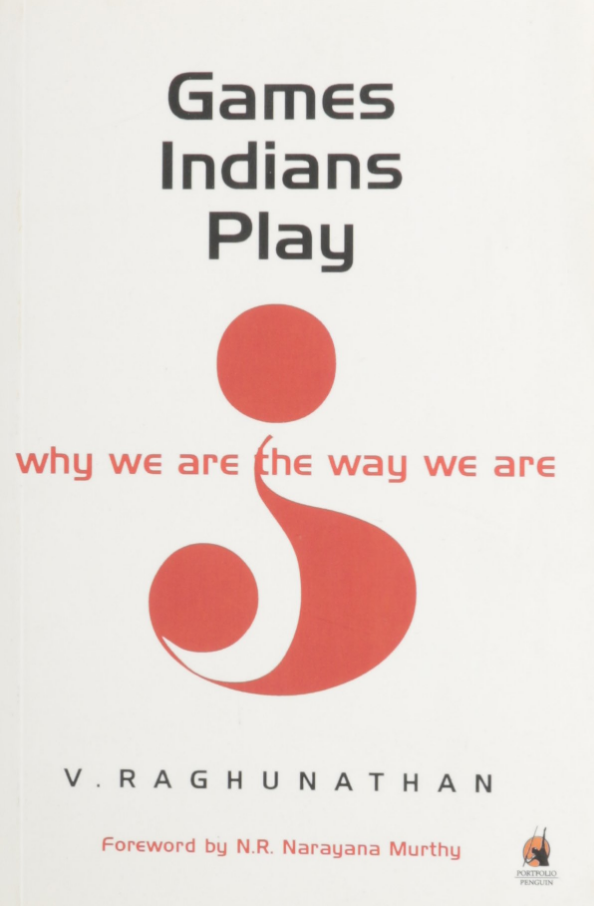Traditional Textbook Economics has the point of view of maximising utility. It means that each individual’s action in the economy is based on the expectation that they will make the maximum possible gain from a transaction. Whereas, behavioural economics has taught us, painfully, that we may not always be doing this well. We may set out with the best intentions of maximum gain but many times our actions fall short of the goal.
“It is not the final action, but the motivation underlying the action, that decides what is or is not viewed as cooperative or fair behaviour.”
– Games Indians Play by V Raghunathan
Prisoner’s Dilemma is a wonderful thought experiment, from the concept of Game Theory. In short, two members of a criminal gang are arrested & imprisoned. They are kept separate & have no means to communicate with each other. There’s not enough evidence to convict them but there’s an opportunity to put them in jail if they testify against each other.
The scene plays like this:
- If Criminal 1 & Criminal 2 betray each other & testify against each other – Both get two years jail time
(Defect – Defect : D-D) - If Criminal 1 betrays Criminal 2 – Criminal 2 will serve three years in prison & Criminal 1 will walk free (& same in reverse
(Co-operate – Defect : C-D) - If Both Criminal 1 & Criminal 2 stay silent – Both of them will serve only one year in prison.
(Co-operate – Co-Operate : C-C)
This is very easy to play if we think as truly rational individuals who are set out to maximise our personal gain. It is obvious that if I trust my criminal friend to stay silent, there’s maximum payoff for me to betray & walk free. But since we are both rational, we will both think from the same point of view. However if we both stay silent, we may only get a minor punishment.
The example is quite harsh because it involves criminals, betrayal, jail time & such horrible stuff. But if the same concept is placed in real life it is interesting how things play out in our mind. Another aspect of the game is do we interact with the same player again in a similar situation or is it going to be a single round of the game with a new player each time.
For example, in a social situation do we co-operate with a complete stranger who we will not meet again, in the same way, as we would co-operate with our friends or colleagues who we will meet often in our life. Prof V Raghunathan, in his very interesting & tiny book called Games Indians Play, argues this idea from an Indian Context.
There are ample lessons to be drawn from how we behave ourselves in various single games or multiple games with different players we interact with in life. The book deals with the elusive idea of “trust” amongst partners. Partners not just in commercial situations but also in general social situations.
From an investing point of view, it is believed that we are partners with the promoters / managements who are co-owners in a business. We are even encouraged to believe that we must be long term investors & trust that the promoters / management have the best interests at heart when it comes to operating the business. The value of the business will only grow, if the business does well over the longer term. The promoters / management of a business don’t change that often, however, in the stock market, the other investors who buy / sell shares of the company from the market, may change quite often.
From the promoters point of view, this may seem like a single play prisoner’s dilemma game, where they may not be playing the same game with the same players again.
The game can be something like this:
If the promoters co-operate with the partners (stock market investors) by not betraying them, they will forgo the immediate benefit of making more money for themselves from this listed company, but that means the company will continue to be more valuable for both of them, but less valuable to the promoters personally.
Or, if the promoter betrays the partners (stock market investors) by choosing to use the company as a personal ATM machine and steal money from it by various means. Promoters will benefit immensely but since the investors keep changing, promoters may keep getting away with it every time. Only the current investors suffer from promoters / management actions.
Or, If they both decide to betray each other, promoters steal money from the company & benefit themselves immediately, the existing investors also decide to betray the promoter by being short term speculators in the shares and in the longer run they both fail to gain from the future prospects of the business.
“They fail to maximize their long-term rewards for an immediate temptation. What makes it so difficult for us to realize that the temptation points we earn owing to immediate temptation comes at the cost of a string of future rewards?”
– Games Indians Play by V Raghunathan
If you aren’t tired of the recent media focus on Berkshire Hathaway & can re-read the Berkshire owners’ manual it might seem like, companies tend to get the shareholder’s they deserve.
In the final leg of the game, what if both the promoters & investors decide to co-operate. They both decide to forgo the short term temptations of getting rich quick which means they will get rich slowly over the longer run as (if) the business does well over time.
Like Yogi Berra may have said, “In theory there’s no difference between theory and practice, but in reality there is.”
There are several considerations which go in the area of fairness or ethics which are very hard to capture in such a general game of Prisoner’s Dilemma. We can also label it differently as Promoters’ Dilemma / Partners’ Dilemma. There are issues like whether promoters’ risk capital is worth more than the stock market’s risk capital, should there be a greater voting power given to controlling partners? Should longer term partners be given more voting rights than speculators? & so on.
But we can observe that broadly the Co-Operate – Co-Operate C-C model works better in the longer term for both the promoters and the outside partners because they have a better chance of maintaining sanctity of the capital markets. In such situations the capital market partners are neither hostages of controlling promoters nor they are treated as trespassers.
“Why sacrifice one’s self-interest for the sake of the community when one can throw away the trash without any fear of retribution?”
– Games Indians Play by V Raghunathan
However in reality people choose to be driven by different motivations which makes the market a far more interesting place to find opportunities.


Leave a Reply